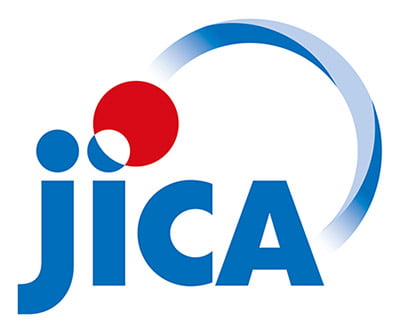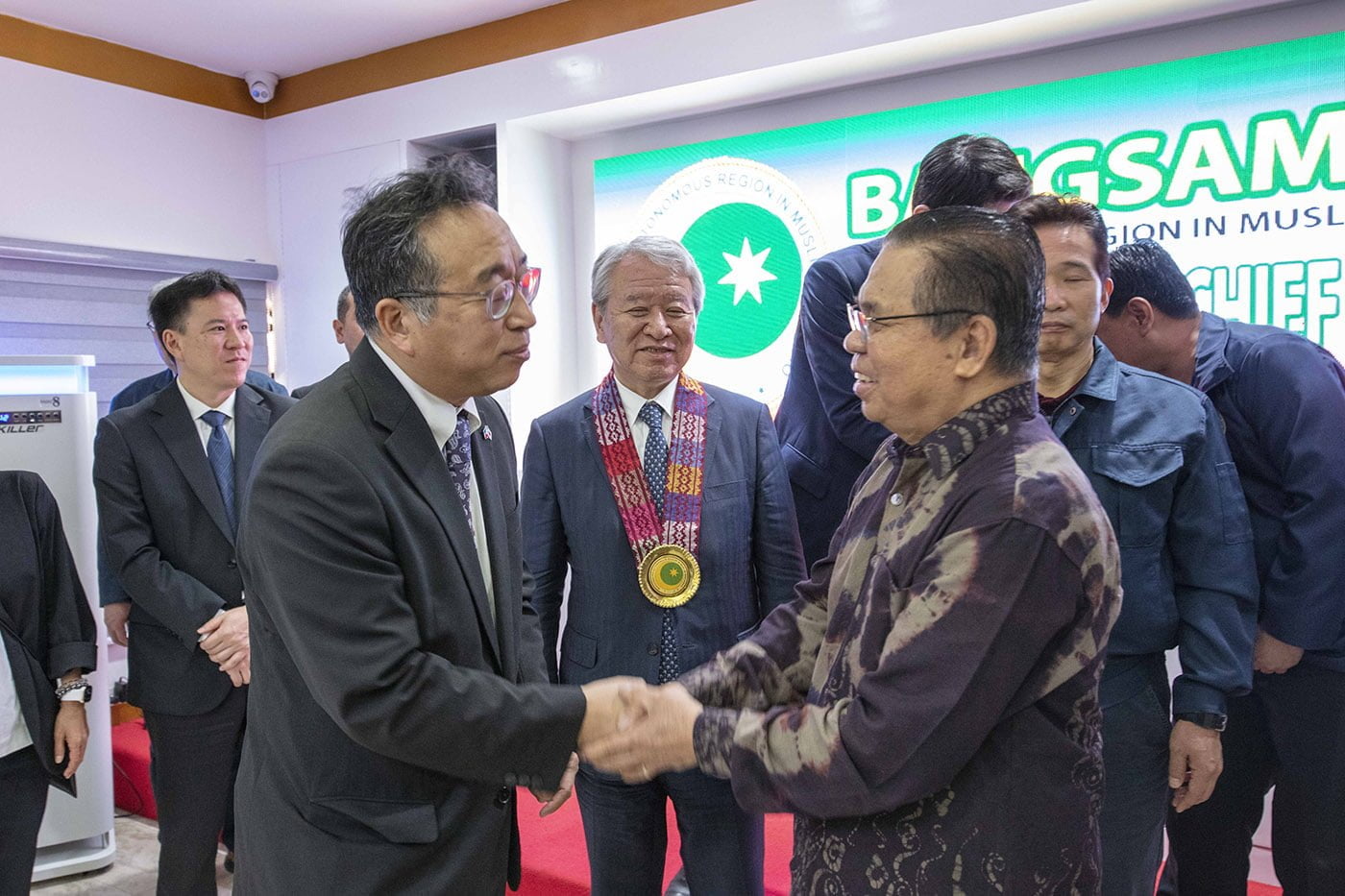Bridges: Tell us about JICA’s history in the Philippines
Sakamoto: I want to begin by saying that the ties between Philippines and Japan, as the Philippine President said, is “a friend closer than a brother.” The Japan International Cooperation Agency (JICA), the Japanese government’s administrative agency implementing Official Development Assistance (ODA), continues to be a trusted partner and true friend of the Philippines. The more than six decades of bilateral ties between the Philippines and Japan were, in fact, testament to our unwavering partnership and strategic relationship.
If we go by the size, JICA remains as one of the biggest ODA partners of the Philippines, more than three times than that of the USA, the 2nd biggest ODA partner in 2020. The Philippines is one of the top recipients of Japan’s ODA in the world, too. In the previous Japanese fiscal year, the Philippines has become JICA’s 2nd biggest ODA recipient country in the world.
I strongly believe our relationship will remain UNWAVERING and SOLID even in the future. They say we’ve reached the Golden Age of our partnership, and JICA will continue to be a reliable and trusted development partner and friend of the Philippines.
Takema Sakamoto, Chief Representative, Japan International Cooperation Agency
Our more than 80 ongoing cooperation projects nationwide are anchored on three pillars: sustainable growth, human security with the concept of “No-One-Left-Behind”, and Mindanao peace and development. These projects cover wide-ranging sectors and the JICA brand is without question known for the quality of its support to Philippine development. JICA provides not only tangible infrastructure development cooperation, but we also share Japan’s expertise through technical cooperation. It’s a balanced combination of hard and soft measures providing maximum impacts to Filipinos.
What are the current challenges being faced by the public and private sectors in the Philippines?
Each country has its development challenges. For the Philippines, it is acknowledged that the following remain challenges to be addressed:
In terms of those affecting sustainable, inclusive, and resilient growth, what we see are challenges in infrastructure, social development, disaster fragility, inequality or disparity and Mindanao peace process among others. It is difficult to draw priorities among these challenges, but we are keen to address all aspects of Philippine development as one of its closest friends.
There is a clear policy under the current Marcos administration to give high priority to infrastructure. The Philippines is lagging behind other neighboring ASEAN countries in this area, so we believe, the Philippine government is on track in prioritizing this. Infrastructure is an important obstacle that must be JOINTLY TACKLED. Subsequently there would be better business environment for investments, which can ensure the sustainable growth in the future.
Another important challenge is the improvement of the Philippines’ image in the international society and market. It is crucial that the Philippines shows it can be a reliable economic partner and that the people are confident in the government. For instance, in the ability of the government to effectively manage land acquisition issues, budget appropriation, and contract undertakings, to cite a few. Streamlining the decision-making process is also important to improve efficiency in government and to boost public confidence. President Marcos already mentioned efforts like the Anti-Red Tape Authority (ARTA) which we think is key to good governance and I agree with him. Should there be vague regulations or enforcement on the ground hindering a more productive government operations and private business deployment, JICA will be happy to support the Philippines through technical cooperation and other instruments.
So, basically, addressing these challenges would be a positive direction. As we always say, JICA is enthusiastic and ready to create a better future together with the Filipinos through our cooperation. This is embodied in the line we always say in JICA, kasama niyo kami! (We are with you!)
What projects does JICA Philippines have planned for 2023/2024?
JICA has a lot of substantial projects in the Philippines. If I may exemplify some of them briefly:
Metro Manila Subway Project


The Philippines’ first-ever underground subway is called the “Project of the Century” specifically in terms of its impacts to urban issues in transportation. Aside from easing commuting times, the subway, once completed, impact on the quality of life of many Filipinos. It is also predicted that a modal shift from current private vehicle travel to mass transit will have a tremendous positive impact on air pollution and climate change. In this context, Transit Oriented Development (TOD) will be promoted, even through JICA’s new technical cooperation, both for pursuing ideal connectivity and for station area development, too.
JICA is also working on a 30-year long-term masterplan for railways in the Greater Capital Region. You see, Japan has a long history and rich experiences in developing quality transport infrastructure that is a model to the world, not just in promoting mobility but also in making transportation accessible to all social classes and boosting regional development.
Beyond this, JICA is also implementing other kinds of infrastructure planning such as Metropolitan Davao Urban Development Masterplan, Davao Wastewater Management Masterplan, Cebu-Mactan 4th Bridge Construction, and Cebu Septage Management. These are partnerships with local government units (LGUs) that could enhance their growth potential and bring equitable development in the entire country.
Disaster Risk Reduction and Management (DRRM) Enhancement
We’ve witnessed gigantic economic and social costs of natural disasters, as the Philippines is described as one of the most vulnerable countries in the world. It is said that a US$ 1 preventive prior investment can reduce post-disaster reconstruction costs by US$ 15. So, for the Philippines, JICA has been strategically working with many frontline agencies in disaster management. We have the technical cooperation project for road disaster prevention and other countermeasures on mountainous roads, coastal engineering project, and flood control projects in Davao as part of the Greater Davao Masterplan. Hopefully, these projects will save more lives. JICA’s flood control project in Cavite is also underway, and President Marcos acknowledged the effectiveness of this project during typhoon Paeng in 2022. In the Pasig-Marikina River basin, through series of JICA support, it is estimated that the flood damage caused by typhoon Ulysses in 2020, was eased from US$ 1.3 billion to US$ 0.2 billion, and from 1 million victims to 0.03 million.
Agriculture Development
JICA has been collaborating in the agriculture sector in the Philippines for more than five decades, and through JICA’s many projects, such as irrigation facility development, crop productivity in the country achieved a higher rate than the average of ASEAN countries. JICA still continues to support the Philippines’ efforts in this area, and also diversifies its cooperation even in the field of vegetable value chain development to revolutionize the Philippine agriculture sector. For the better quality of life of Filipinos, modernized food supply chain has been long awaited. In addition, income generation of farmers and job creation through the vegetable industry development, in terms of equitable growth of the country, are also the challenges to be addressed. JICA intensifies its focus in this regard.
Partnership with the Philippine Coast Guard (PCG)
Core part of JICA’s policies is promoting a Free and Open Indo-Pacific. Our cooperation with the PCG strives to realize this by a combination of hard and soft measures. Examples of this are our assistance in preparing the PCG facility in Subic for the hard measure, and then experts collaboration among Japan Coast Guard (JCG), US Coast Guard (USCG), and PCG. JICA has been supporting in development of facilities of PCG like vessels, which applied Japanese technology to achieve speed, stability, and sea-worthiness during various operations including search and rescue at maritime incidents, maritime environment protection, and delivery of emergency goods to devastated areas during natural disasters. In addition, for PCG’s capacity development, JICA dispatches Japanese experts and receives many trainees in Japan.
Peace and Development in Mindanao
JICA is very proactive in promoting peace and development in Mindanao, especially in Bangsamoro Autonomous Region in Muslim Mindanao (BARMM). JICA deeply recognizes the importance of BARMM’s peace and development as the essential cornerstone of the prosperity of the entire Philippines. We’re one of the first and the closest development partners to come to move forward together with the Bangsamoro people through our “Japan-Bangsamoro Initiatives for Reconstruction and Development” (J-BIRD) framework. Currently, we’ve been dispatching experts, such as the special advisor to the Chief Minister of Bangsamoro Transition Authority (BTA), and implementing various technical cooperation projects on the ground, such as a Comprehensive Development Project for the Bangsamoro (CDPB) to improve the lives of the Bangsamoro people.




Again, JICA’s brand of development cooperation is exceptionally salient even in our Mindanao projects through combined hard measures (e.g. grant assistance to rehabilitate and revitalize vocational training facilities) and soft measures (e.g. vocational training of citizens including ex-combatants). JICA is also expanding its cooperation to improve public service delivery in this region through infrastructure asset management and road development and water supply projects in conflict-affected areas like Cotabato.
Public-Private Partnership
JICA is also keen in sharing Japanese innovations with social impact to the Philippines. JICA’s partnership program with the Private Sector has been introducing new technology such as special coating materials for quake resilience, AI application in disaster management, waste recycling technology for electricity generation and compost fertilizer production, black garlic processing technology, and mulberry tea processing technology as examples. All these promote win-win partnership between JICA and the Philippines, making room for more Japanese investors to test the market here, and creating more jobs for Filipinos with unique and advanced technologies that Japanese companies transfer.
The above-mentioned projects are only among many other programs that we are actively working together with Filipino friends.
What have been your most enjoyable moments here in the Philippines?
I had only been in the Philippines only for a year as Chief Representative of JICA Philippine Office so far, but I am honored and glad to be given many chances to visit our project sites in Luzon, Visayas, and Mindanao so that I could interact with local people there.
One of the most enjoyable experiences I had to date was to visit Mayoyao in Ifugao Province. They enacted a Resolution declaring me as “Son of Mayoyao,” and naming the JICA project as “Mayoyao-Japan Friendship Bridge”. This is symbolic of the deep friendship and good will between Japan and the Philippines, with people welcoming and praising the impact of JICA’s contributions and achievements. It’s heartwarming how JICA’s work is appreciated in the remote area and how JICA has made a difference in their lives.
Second would be when JICA President TANAKA Akihiko delivered a speech at BTA Parliament in Mindanao. I was with him during the event and we were overwhelmed as to how the Bangsamoro people treats JICA as an exceptionally trusted partner and friend, even issuing a Resolution to thank JICA.
With the Philippines and Japan continuing to share strong relations, what do you think the future holds for this important relationship?
I strongly believe our relationship will remain UNWAVERING and SOLID even in the future. They say we’ve reached the Golden Age of our partnership, and JICA will continue to be a reliable and trusted development partner and friend of the Philippines. We also know that our relationship can still be enhanced further given the changing global context. JICA is therefore very keen to deepen our multi-layered relationship through, in addition to big ticket national flagship project cooperation, public-private partnership promotion, people-to-people exchange through our Japanese volunteers and experts, and human resource development for nation building such as our Knowledge Co-Creation Program (KCCP) and JICA scholarship programs. JICA and the Philippines will surely continue to create a better future together founded on mutual understanding and mutual respect, win-win partnership, and friendship.
RCBC Plaza Tower 2, 40th Floor, 6819 Ayala Ave, Makati, 1200 Metro Manila, Philippines
(P.O.Box 1026, Makati Central Post Office, Makati City, Philippines)
Tel: (63-2) 8889-7119



















